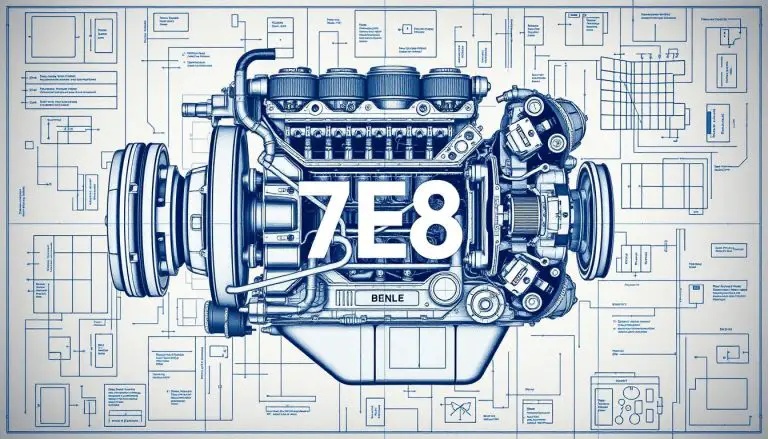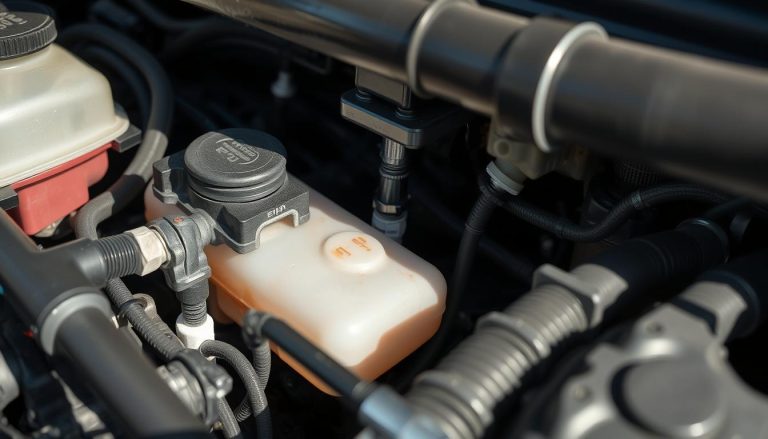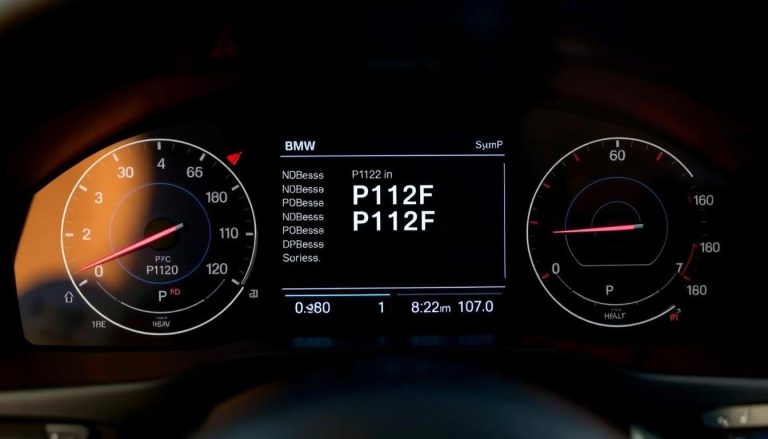When your car’s check engine light flickers to life, among the myriad codes that could pop up on your vehicle’s diagnostic system, the P0274 code stands out as a notable concern. This code specifically points to an issue with the injector circuit for cylinder 5, signaling potential trouble in your engine’s performance.
Understanding what this code means and how it affects your ride is crucial for maintaining both safety and efficiency on the road. So let’s dive deeper into this automotive puzzle: unraveling its mysteries will empower you as a driver and keep your vehicle running smoothly!
What does the P0274 code mean?
The P0274 code is a diagnostic trouble code (DTC) that indicates a problem with the injector circuit for cylinder 5. When this code appears, it means that the Engine Control Module (ECM) has detected an abnormal voltage level in the fuel injector circuit.
In simpler terms, there’s either too much or too little electrical current flowing to the fuel injector of cylinder 5. This can lead to improper fuel delivery, which ultimately affects engine performance.
Fuel injectors play a vital role in ensuring your engine runs efficiently by delivering precise amounts of gasoline at the right time. If there’s an issue with one of them, it can disrupt combustion and lead to various driving problems. Understanding this code empowers you to act quickly before minor issues escalate into major repairs.
What parts can be affected by P0274 code ?
The P0274 code primarily impacts the fuel injector for cylinder 5. This vital component controls the flow of fuel into the engine, ensuring optimal performance.
A malfunctioning fuel injector can lead to improper fuel delivery, resulting in poor engine efficiency and increased emissions.
Additionally, wiring and connectors within the injector circuit may also be affected. Damaged or worn wires can disrupt electrical signals, exacerbating issues related to injection timing and quantity.
The Engine Control Module (ECM) is another crucial part involved. It monitors various components and adjusts operations based on sensor readings.
If any of these parts are compromised, it can trigger a cascade of performance problems throughout the vehicle’s system. Recognizing which components might be at fault helps in targeting repairs effectively.
What are the possible causes of a P0274 code?
The P0274 code typically points to issues with the cylinder 5 injector circuit. Several factors can trigger this error.
One common cause is a faulty fuel injector itself. If it’s malfunctioning, it may not deliver the right amount of fuel to the engine.
Wiring problems are another culprit. Damaged or corroded wires in the injector harness can disrupt electrical signals and lead to high circuit readings.
Additionally, an issue with the Engine Control Module (ECM) could be at play. If the ECM misinterprets data from cylinder 5, it might incorrectly trigger a P0274 code.
Low fuel pressure could also contribute. A weak pump or clogged fuel filters might prevent sufficient flow, affecting performance and triggering diagnostic trouble codes like P0274.
What are the common symptoms of a P0274 code?
When the P0274 code triggers, your vehicle may exhibit several noticeable symptoms.
One of the first signs is a rough idle. You might feel vibrations or hear irregular engine noises while stationary. This can be unsettling and impacts overall driving comfort.
Acceleration issues are also common. If your car struggles to gain speed or feels sluggish, it’s a signal that something isn’t right with the fuel injector circuit.
Another telltale sign is decreased fuel efficiency. If you’re making more frequent trips to the gas station without changing your habits, this could point to problems related to the P0274 code.
Check engine lights often illuminate when there’s an issue with engine performance. Ignoring these indicators could lead to further complications down the road.
What are the diagnostic steps for a P0274 code?
To diagnose a P0274 code, the first step is to connect an OBD-II scanner to your vehicle’s diagnostic port. This allows you to confirm the presence of the code and check for any additional trouble codes that may provide context.
Next, visually inspect the wiring and connectors associated with cylinder 5’s fuel injector. Look for signs of damage or corrosion that might affect performance.
Check the voltage supply to the injector using a multimeter. Ensure it meets manufacturer specifications, as insufficient power can trigger this code.
Then, perform a resistance test on the injector itself. This helps determine if it’s functioning correctly or if it needs replacement.
Clear the codes and take your vehicle for a test drive. Monitor for reoccurrence; if P0274 returns, further investigation into related components might be necessary.
How serious Is the P0274 Code? Can I continue driving with the P0274 code?
The P0274 code indicates a high injector circuit issue in cylinder 5. This can lead to various engine performance problems. Ignoring it could worsen the situation.
Driving with this code is not advisable. You may experience rough idling, poor acceleration, or even stalling. These symptoms can compromise your safety on the road.
If you notice any of these signs, it’s best to address them quickly. Continuing to drive might cause further damage to the fuel system or related components.
In some cases, while your vehicle might still run, long-term effects could jeopardize engine health and efficiency. Prioritizing repairs ensures smoother operation and prevents costly fixes later on.
What are the repair solutions for a P0274 – Cylinder 5 Injector Circuit High ?
Repairing a P0274 code typically begins with inspecting the wiring and connectors associated with Cylinder 5’s injector. Look for signs of fraying, corrosion, or loose connections that could cause poor electrical signals.
If the wiring appears intact, testing the injector itself is essential. A malfunctioning fuel injector may need replacement if it fails to meet specifications during testing.
Sometimes, issues can stem from the engine control module (ECM). Reprogramming or even replacing the ECM might be necessary if all other components check out fine.
Additionally, consider checking for any vacuum leaks around Cylinder 5. Leaks can disrupt proper fuel delivery and lead to erroneous codes.
Clearing the trouble code after repairs and conducting a test drive will verify whether the solution was successful. Always ensure that your vehicle’s systems are functioning optimally before returning to regular driving conditions.
What other codes may be related to P0274?
When dealing with the P0274 code, it’s essential to recognize that other codes might also surface. These can provide more context about the issues at hand.
Codes like P0205 may appear alongside P0274, indicating a problem specifically with injector number 5. This could further confirm an injector circuit issue or fault.
Other related codes include P0269 and P0271, which indicate problems in cylinder performance and fuel delivery for cylinders four and six respectively.
Monitoring these additional codes helps pinpoint whether the trouble is localized to one part of the system or if there are broader issues affecting multiple components. Having this information allows for a more effective diagnostic process and repair strategy down the line.
How much does it cost to diagnose and repair a P0274 code?
Diagnosing and repairing a P0274 code can vary widely in cost. For the initial diagnostic, expect to pay between $100 to $150 at most repair shops. This usually involves scanning your vehicle’s computer system and performing basic tests.
If parts need replacement, such as fuel injectors or wiring harnesses, costs increase significantly. Fuel injector replacements alone can range from $200 to $600 each, depending on the make and model of your vehicle.
Labor charges also factor into the total expense. Mechanics typically charge anywhere from $75 to over $150 per hour for labor. Repair time may take one to three hours based on complexity.
Be sure you get a detailed estimate before proceeding with repairs. Always weigh the cost against potential long-term benefits for better performance and efficiency.
How long does it take to diagnose and repair code P0274?
Diagnosing and repairing the P0274 code can vary in time based on several factors. Typically, a skilled mechanic may take about one to two hours for diagnosis. This involves hooking up an OBD-II scanner, reviewing live data, and conducting visual inspections of wiring and connectors.
Repair time depends on the underlying issue identified during diagnosis. If it’s merely a faulty connector or wiring issue, repairs might be quick—potentially just under an hour. However, if the problem lies within the fuel injector itself or requires significant disassembly of components, it could extend to three or more hours.
It’s essential to consider that each vehicle is different. The complexity of your specific model can also affect repair duration significantly. Always consult with a professional who can provide tailored insights into your situation.
Is the P0274 code specific to certain car makes or models?
The P0274 code is not exclusive to any specific car make or model. It can occur in a wide range of vehicles, especially those equipped with fuel injection systems.
Many manufacturers produce engines that share similar designs and components, making this code relatively common across various brands. However, the frequency of occurrence may vary depending on factors like engine type and age.
Certain models known for their performance might be more susceptible due to higher stress on the injector circuits. Regular maintenance habits also play a role in how often you encounter this issue.
If you’re experiencing a P0274 code, it’s essential to consult your vehicle’s service manual for insights tailored to your specific model. This way, you can address potential problems effectively while being aware of the tendencies linked to your car’s design.
How can I avoid a P0274 code?
Regular maintenance is key to preventing the P0274 code. Make it a habit to check your vehicle’s fuel system. This includes inspecting fuel injectors for clogs and leaks.
Keeping an eye on wiring and connectors can save you headaches later. Damaged or corroded connections may lead to injector circuit issues.
Use high-quality fuels that meet your car’s specifications. Poor fuel quality can cause performance problems, including misfires related to injector circuits.
Pay attention to any unusual engine sounds or warning lights. Early detection of issues can prevent further complications down the line.
Schedule routine diagnostic scans with a professional mechanic. They can catch potential problems before they escalate into serious codes like P0274. Taking these proactive steps will help keep your engine running smoothly and efficiently.
What happens if you ignore a P0274 code?
Ignoring a P0274 code can lead to several serious consequences. First and foremost, the performance of your vehicle may decline. You might notice reduced engine power or efficiency, which affects your driving experience.
Continuing to drive with this code can also cause further damage to the fuel injection system or other related components. If the issue stems from an electrical fault, leaving it unaddressed could result in wiring problems that are costly to repair later on.
Additionally, you risk failing emissions tests if applicable in your area due to incomplete combustion caused by injector issues. This could mean fines and additional repairs down the line.
Neglecting a P0274 code is not advisable. Addressing it promptly ensures better performance and longevity for your vehicle while saving you money in potential future repairs.


